If you're a healthcare worker who experiences tired legs by the end of your shifts, compression socks for nurses might be the solution you've been looking for. Nurses and others who work in the industry are often on their feet for long, grueling shifts, commonly working 12 hours or more. The constant movement and standing can put a lot of pressure on your legs and feet, leading to discomfort, swelling, and fatigue.
Let's examine how compression socks may keep you comfortable and prevent adverse conditions.
Why Are Compression Socks Good for Nurses?
Compression socks are specially designed to help with circulation, reduce swelling, prevent varicose veins, and keep you more comfortable throughout the day. These are all things nurses and healthcare workers contend with if they're on their feet for extended periods. Here are four reasons nurses should consider making compression socks a part of their daily routine.
- Reduce Swelling and Fatigue
After a long shift, your legs may feel heavy, swollen, and sore. This is due to blood and fluid pooling in your legs from standing for extended periods. When your legs are positioned below your heart for hours, circulation slows down, causing uncomfortable swelling in your feet and lower legs.
Compression socks help counteract this by applying pressure that promotes blood flow back to your heart. The result? Less swelling, less discomfort, and a reduced feeling of fatigue. Wearing compression socks helps ensure your legs don't feel like lead by the time you get home.
Swelling isn't just about discomfort—over time, it can lead to more severe health problems. By wearing compression socks, you can prevent chronic issues like venous insufficiency and deep vein thrombosis (DVT), which can develop due to poor blood circulation.
Quick Tip: Put on your compression socks first thing in the morning before your legs start swelling. This will keep your blood flowing correctly all day, reducing that end-of-shift fatigue you're familiar with.
- Prevent Varicose Veins
Have you noticed veins in your legs becoming more pronounced? Nurses are at higher risk for developing varicose veins, and it's no surprise — constant standing or sitting leads to blood pooling in the veins, which causes them to stretch, swell, and bulge outward.
But varicose veins aren't just a cosmetic issue. If you don't treat them, they can cause discomfort, pain, and even more severe complications like leg ulcers. Taking preventative steps early, like wearing compression socks, can save you from future health problems and keep your legs in top shape.
Compression socks are one of the best ways to prevent varicose veins from forming or worsening. They apply gentle pressure to your veins, preventing blood from pooling and keeping them healthy and strong. Additionally, compression socks can also help relieve nerve pain.
Many nurses think they'll worry about varicose veins later in their careers, but starting early is vital. Even if you haven't noticed symptoms, wearing compression socks can prevent varicose veins before they start.
- Enhance Muscle Recovery Between Shifts
You don't need to be a marathon runner to benefit from quicker muscle recovery. Nurses put their legs through a lot of strain during long shifts — walking miles daily and carrying heavy objects. Your muscles need time to recover between those back-to-back days.
Compression socks improve blood circulation to your muscles, giving them more oxygen and nutrients. This helps your muscles heal faster, reducing soreness and stiffness after long periods of standing and walking. Even if you sit all day, compression socks can benefit office jobs, too, preventing blood from pooling in your feet.
Unlike athletes, nurses rarely get time to rest and recover properly. That's why wearing compression socks during and after your shifts can help your legs feel fresh and ready to go the next day. When your muscles are taken care of, you'll feel more energized and prepared to handle your next shift without the nagging soreness that can slow you down.
Quick Tip: Consider wearing compression socks during your shift and the evening after work, especially if your legs feel sore. The extra circulation boost can help your muscles recover faster.
- Boost Energy and Reduce Fatigue
Nurses aren't just physically tired by the end of a shift—mental fatigue can also take a toll. Compression socks can help reduce physical fatigue by energizing your legs and improving blood flow. This, in turn, enables you to stay more alert and focused throughout the day, reducing your mental fatigue.
While compression socks won't replace a whole night's sleep or a good cup of coffee, they can make a noticeable difference in how your legs feel at the end of a long shift. Reducing the buildup of lactic acid in your muscles can help prevent that heavy, tired feeling in your legs. With less strain on your legs, you can move more comfortably, react quicker, and stay sharper during those long, demanding hours.
Choose the Right Compression Socks As a Nurse
Now that you understand the benefits of compression socks, it's essential to choose the right ones for your needs. Not all compression socks are created equal.
Look for graduated compression socks. These socks are tightest at the ankle and gradually decrease in pressure as they move up your leg. This promotes proper blood flow while ensuring comfort throughout the day.
A compression level of 15-20 mmHg is ideal for most nurses. This level provides enough support to reduce swelling and fatigue without feeling too restrictive. However, suppose you're dealing with more serious issues like varicose veins or severe swelling. In that case, you may need a stronger compression level, like 20-30 mmHg.
Also, pay attention to the materials. Opt for breathable, moisture-wicking fabrics like nylon and spandex, which will help keep your feet dry and comfortable during long shifts. Avoid socks with seams, especially around the toes, as they can irritate after prolonged wear. Cooling compression socks can be a great way to avoid sweating in the summer.
Whether you're looking for regular or plus-size compression socks, the market offers a range of sizes to ensure a perfect fit for every body type, providing the same benefits without compromising your comfort or the socks' effectiveness.
Finally, remember—compression socks don't have to be boring! Brighten your long shift with colorful striped compression socks, or get in the seasonal spirit with holiday compression socks.
Additional Foot Care for Nurses
While compression socks can do wonders, they're not the only way to take care of your legs and feet after long shifts. Combine them with other foot care strategies to give yourself the relief you deserve:
- Soak your feet in warm water with Epsom salts after your shift to reduce soreness and relax your muscles.
- Elevate your legs when you get home to help drain excess fluid and reduce swelling. Even 20 minutes of leg elevation can make a difference.
- Switch to supportive shoes with good arch support and cushioning to help reduce strain on your legs and feet during work.
Taking a few extra steps to pamper your feet will improve your feelings on and off the clock. Compression socks, proper footwear, and post-shift care will help prevent long-term health issues and improve overall comfort.
Frequently Asked Questions
Why do nurses wear compression socks?
Nurses wear compression socks to improve their circulation, reduce swelling and leg fatigue, and prevent conditions like varicose veins and deep vein thrombosis (DVT), especially during long shifts on their feet.
What are the benefits of compression socks?
Compression socks help increase blood flow, reduce swelling, decrease the risk of blood clots, support muscle recovery, and prevent varicose veins, making them ideal for anyone who spends long periods standing or sitting.
What compression is best for nurses?
For most nurses, a compression level of 15-20 mmHg is recommended, but those with more severe issues like varicose veins or significant swelling may need a higher compression level of <20-30 mmHg.
How long should a nurse wear compression socks?
Nurses should wear compression socks throughout their shift, typically 8 to 12 hours. They can also benefit from wearing them during recovery after a long day.

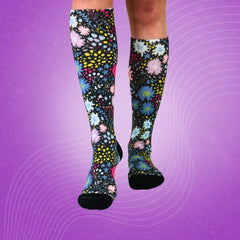
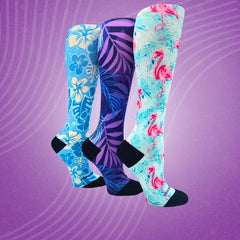
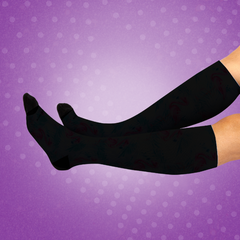
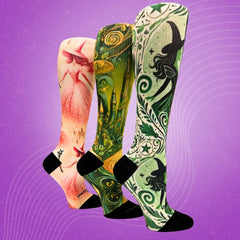
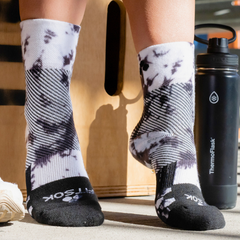
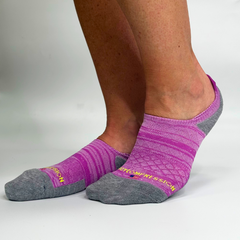




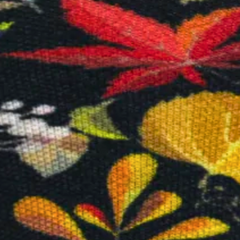
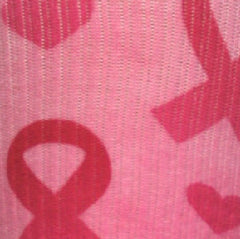
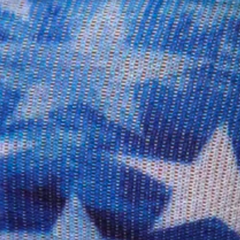

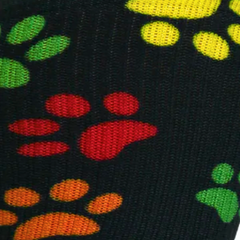
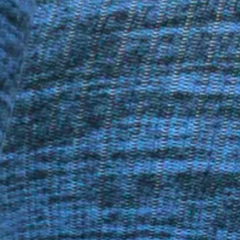
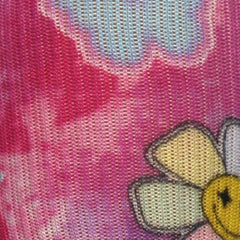

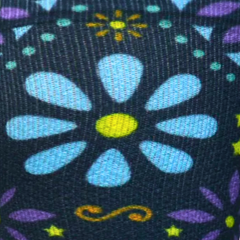
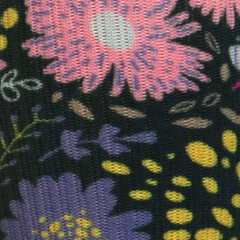
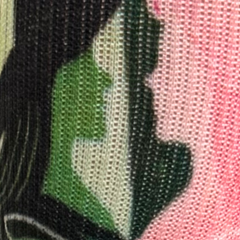
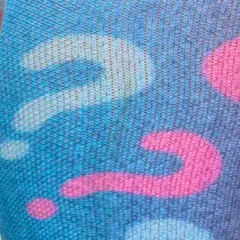
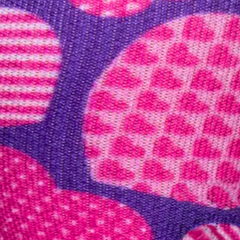
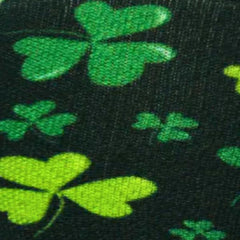
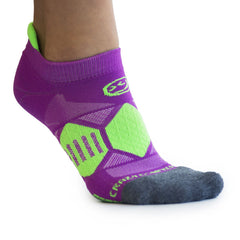

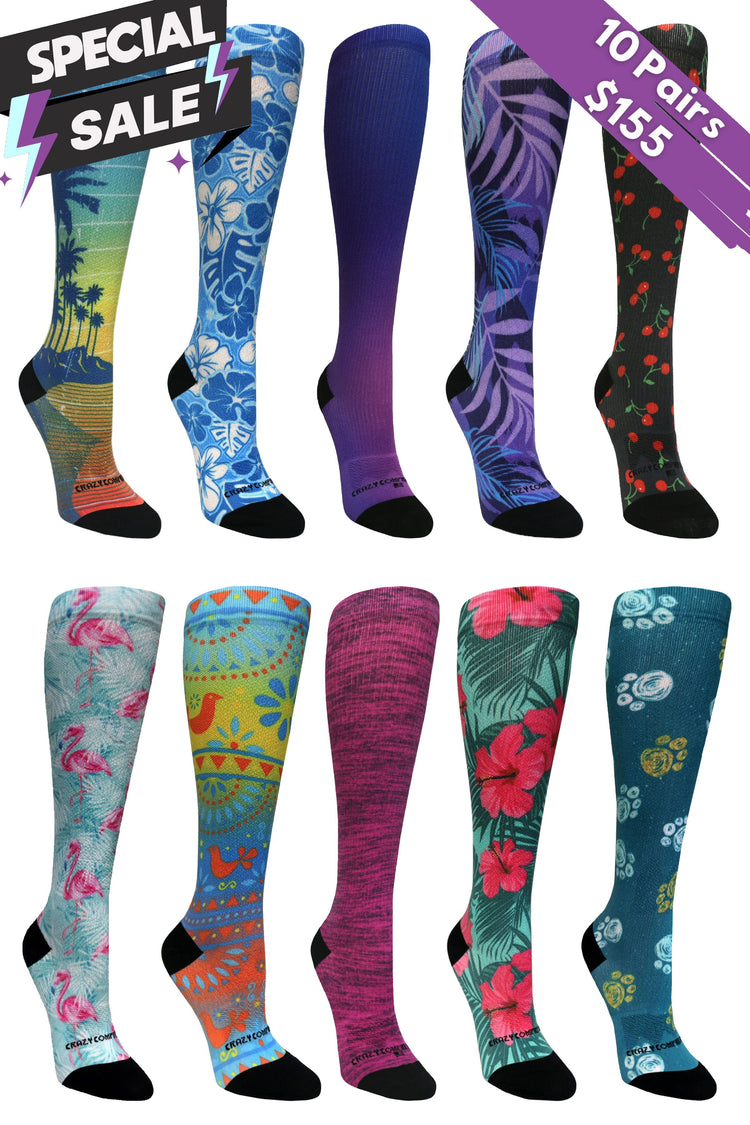


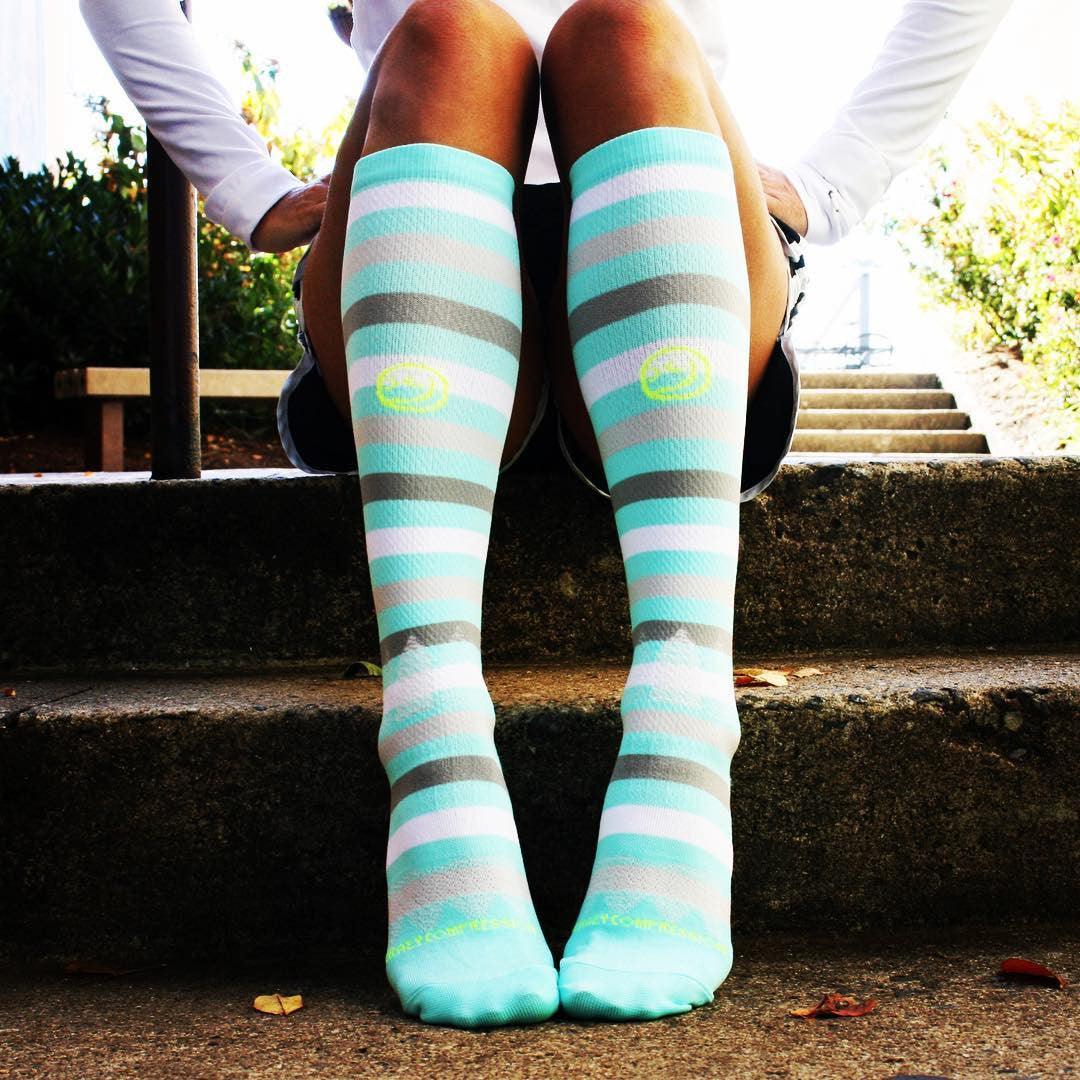
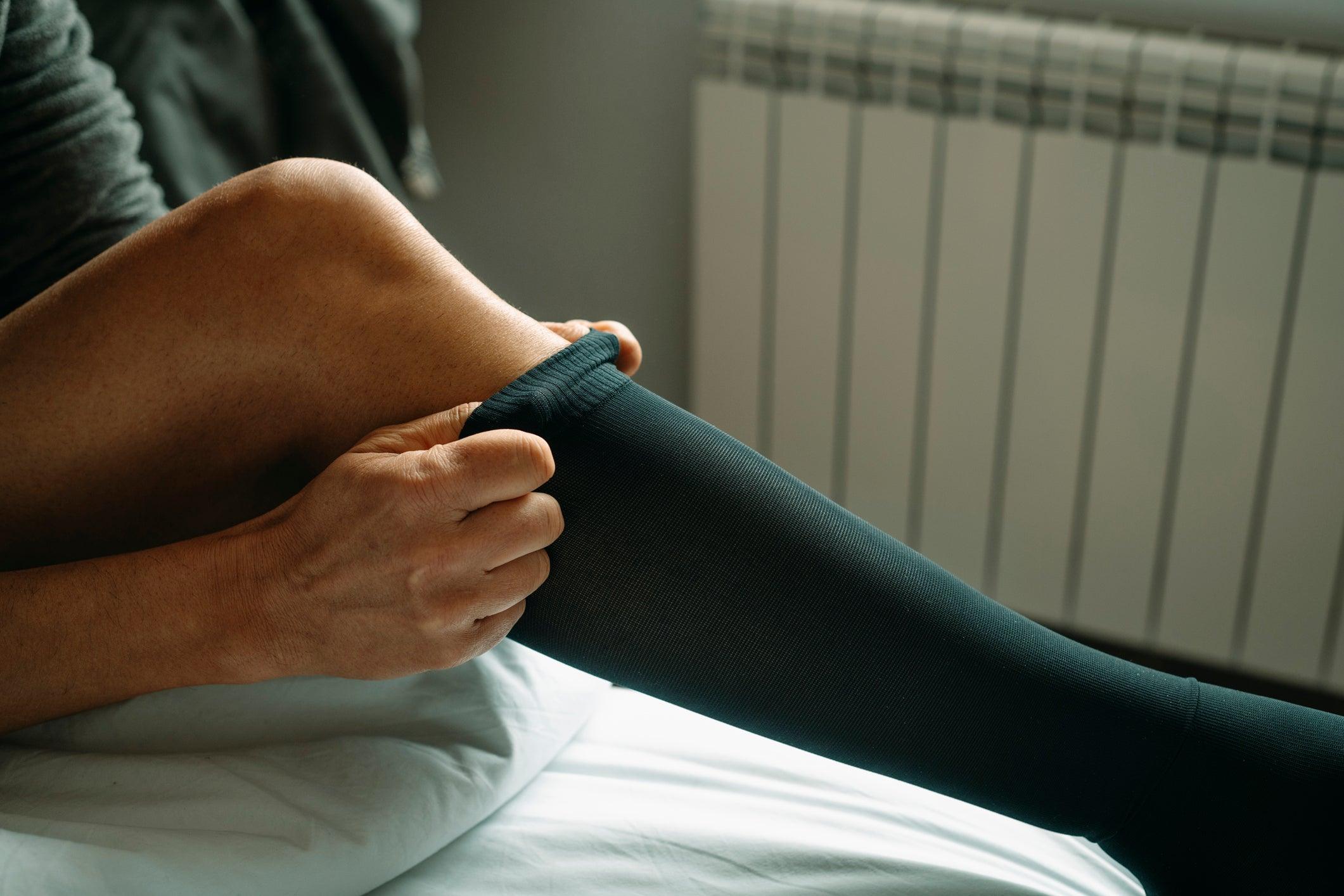
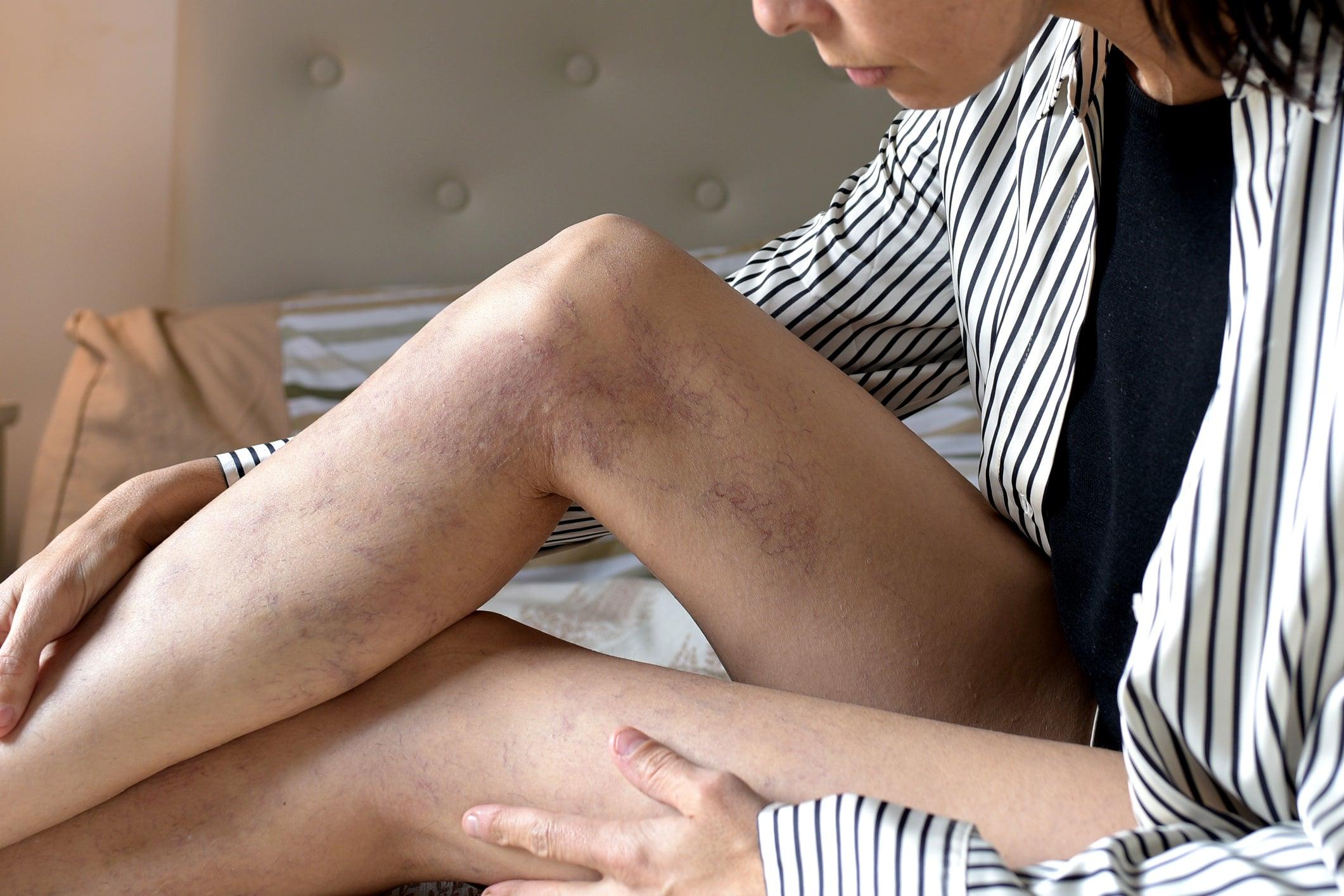
Leave a comment
This site is protected by hCaptcha and the hCaptcha Privacy Policy and Terms of Service apply.